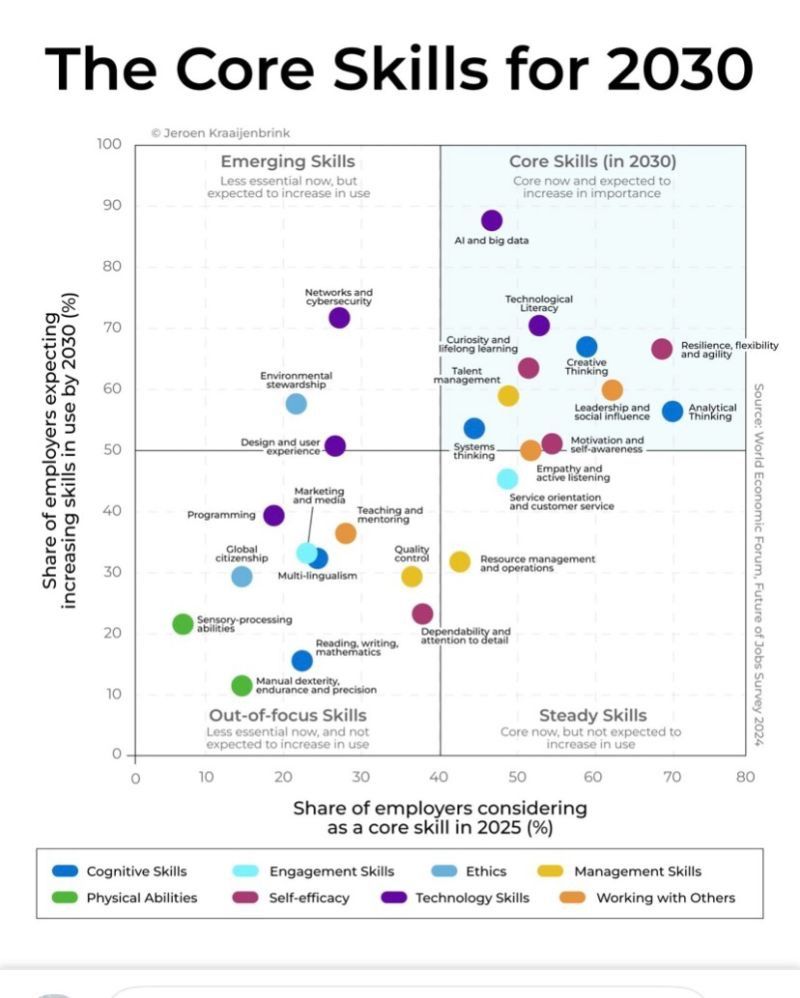Determining the skills for the future of work in an AI world is showing up everywhere right now. If you know me, you’ll understand that seeing reading and writing listed as one of the most out-of-focus skills gave me some pause. I’m not suggesting that future knowledge workers will be spending their workdays reading in a library, but hear me out on why you shouldn’t sleep on these skills.
In the world of physical training, there are two types of training: specific physical preparedness (SPP) and general physical preparedness (GPP). If I am a wide receiver playing American football, then running patterns and catching the ball are SPP. They are specific skills that I will use in the game itself. SPP usually doesn’t translate broadly. If I switch to playing basketball, that route running practice likely won’t help me much. My GPP, on the other hand, would be something like weighted squats. This is an activity that I will never repeat in the course of a football game. But it builds attributes like strength, durability, and power that I will use while running routes and in many other aspects of the game. This GPP will also help me as an athlete when I switch to playing basketball and in many other domains. There are also second-order benefits of GPP like this, such as planning, discipline, and confidence that carry broad applicability to sport and life.
Most of the learning I see people engaging in for AI skills falls into the SPP category: experimenting with tools, short introductions, and daily use. This content is useful and important, but it isn’t building your capacity in many of the top right skills like creative / analytical thinking, empathy, lifelong learning, etc. Reader, Come Home – The Reading Brain in a Digital World by Maryanne Wolf documents the science showing how a practice of reading books improves almost every skill in the top right quadrant. So while you may not read as a part of your job, reading is your GPP to prepare for the future of work with AI. I would also argue that reading AI related books plays a SPP role as well, since these sources often go far deeper into topics than popular microlearning style lessons.
And guess what, things in 2030 will probably not be exactly as we predict them today. What won’t change is that a reading practice will help build whatever skills you will need at that point. You’ll identify as a self-directed, disciplined, and curious learner, and people like you will always be needed.

Leave a Reply